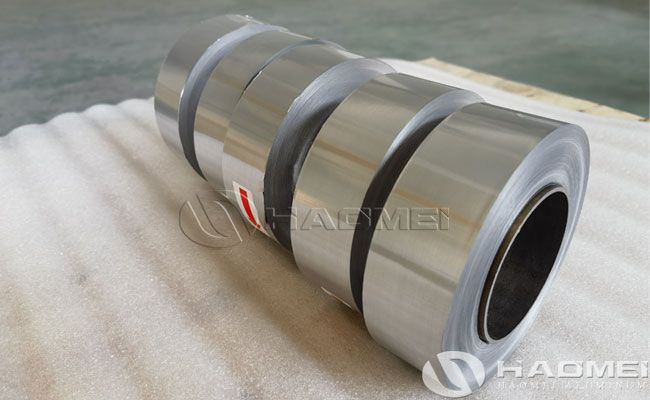Electronic aluminum foil is a kind of aluminum foil specially used for electronic products and electrical equipment, usually with high purity and good conductivity. It is widely used in batteries, capacitors, conductive materials and other fields.

- Alloy:
Electronic aluminum foil has extremely high purity requirements (impurities will affect the quality of the oxide film and electrochemical properties), and mainly uses high-purity aluminum alloys, mainly 1xxx series (pure aluminum series), such as 1060, 1070, etc.
- State (heat treatment/processing state)
O state (annealed state): After complete annealing treatment, the material is soft, plastic, and has a uniform grain structure. It is the main state of electronic aluminum foil. Its advantage is that the porous structure formed after corrosion is evenly distributed and has a larger specific surface area, which is suitable as a substrate for anode foil or cathode foil.
H state (cold hardening state, such as H14, H18): Some intermediate processes may be used to improve strength, but the aluminum foil used for corrosion is mostly in O state to ensure electrochemical performance.
- Thickness: The thickness varies greatly depending on the application scenario. The cathode foil is usually 5-20μm and the anode foil is 10-50μm (high-voltage products may be thicker).
- Width: Depending on the capacitor specifications, it ranges from a few millimeters (small capacitors) to tens of centimeters (large industrial capacitors).
Features of electronic aluminum foil:
- High purity: Electronic aluminum foil usually requires the purity of aluminum to reach more than 99.5% to ensure good conductivity and chemical stability.
- Good conductivity: Electronic aluminum foil has excellent conductivity and is suitable for use as electrical connections and conductive materials.
- Thin and uniform: The thickness of electronic aluminum foil is usually thin, generally between a few microns and tens of microns, and the thickness is uniform to meet the requirements of high-performance equipment.
- Excellent mechanical properties: Electronic aluminum foil has good conductivity and also needs to have a certain mechanical strength to adapt to different application environments.
- Good oxidation resistance: The oxide layer formed on the surface of aluminum foil can effectively prevent further oxidation and enhance its durability.
Application of electronic aluminum foil:
- Battery: Anode material used in lithium-ion batteries, which can improve the energy density and cycle life of batteries.
- Capacitor: In aluminum electrolytic capacitors, it is mainly used as the core component of the electrode. Through surface treatment (such as corrosion), a porous structure is formed to increase the specific surface area, and the charge storage or signal conduction function is realized by electrochemical reaction.
- Conductive material: used for electrical connection, shielding material, etc., which can effectively reduce resistance and improve conductivity.
- Signal transmission: In some electronic devices, electronic aluminium foil can be used as a conductor for signal transmission to ensure the stability and quality of the signal.
Electronic aluminum foil plays an important role in the electronics industry. With the continuous development of electronic products, the demand for electronic aluminium foil is also growing. The future requirements of electronic aluminum foil are thinner, more uniform, high performance, and improved pressure resistance, conductivity and antioxidant capacity.
live:onlinehcx